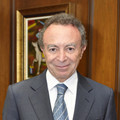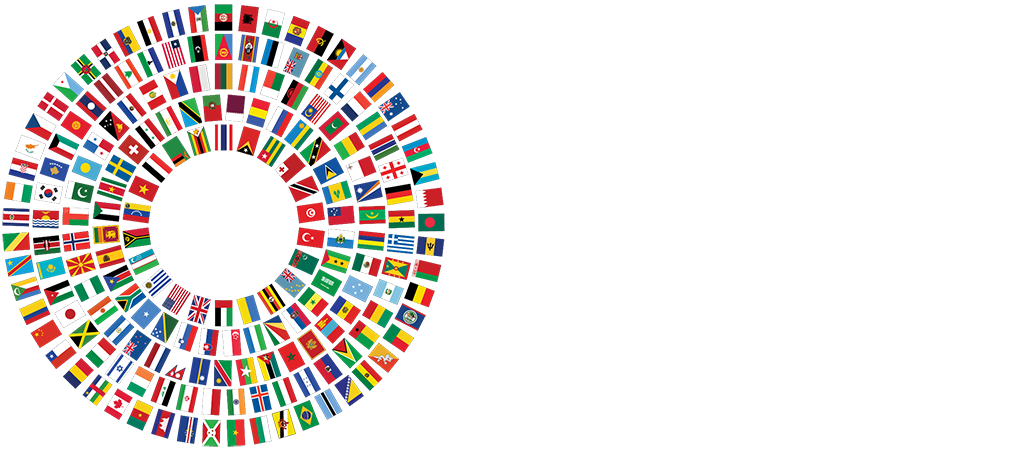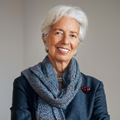Per Jacobsson Lecture: Globalization after the Pandemic
Overview
Globalization will always be vulnerable to global shocks, as we have seen with the recent pandemic. And economies that embraced globalization, like Europe, are more vulnerable to those shocks than others. The powerful economic logic that led to the rise of globalization – be it the mutual gains from trade, or the benefits of diversifying risk in the face of domestic shocks - remains valid today. But it faces important challenges. Protectionism is rising, climate change is accelerating and industrial policy is shifting. A globalized world in transition means Europe must adapt to reap the benefits in the future.

EVENT
DATE: October 16, 2021
DAY: Saturday
10:00 AM - 11:00 AM
LOCATION: Virtual
WATCH THE WEBCAST HERE - October 16, 2021
Per Jacobsson Lecture: Globalization after the Pandemic
Event Summary
Globalization will always be vulnerable to global shocks, as we have seen with the recent pandemic. Economies that embraced globalization, like Europe, are more vulnerable to those shocks. The powerful economic logic that led to the rise of globalization remains valid today but it is being challenged in important ways. Protectionism is rising, climate change is accelerating, and industrial policy is shifting. A globalized world in transition means Europe must adapt to reap the benefits.
Key Points:
- Europe and globalization. The flipside of greater trade openness is the larger exposure to global shocks and the potential for people to turn against globalization. The new shift towards protectionism in other major economies in the late 2010s meant that Europe was particularly exposed to these changes – and the scope to benefit from open trade and diverse demand was reduced.
- A globalized world in transition. The pre-pandemic trends that capped the gains from both trade and diversifying demand may become stronger. The trend towards protectionism shows no sign of abating. Just-in-time supply chains are highly vulnerable to systemic shocks, affecting the euro area more than other economies, and imported volatility may further increase. As climate conditions become more extreme, more frequent ecological shocks are more likely, and the acceleration of the green transition could initially create frictions in the global environment. Responses to these disruptions may have implications for the composition of global demand as firms could end up holding higher inventories as an insurance policy against disruptions.
- Navigating the post-pandemic world. For Europe to act as an anchor of stability in a more fractured and uncertain world, it should continue to pursue trade openness while making it more sustainable, deepen the domestic market, and protect against risk in areas where vulnerabilities are excessive. Achieving strategic autonomy may also require some “re-shoring” of specific sectors. Europe should also strengthen its own domestic demand by steering public and private investment towards green and digital sectors. Monetary policy should continue supporting the economy to stabilize inflation at 2 percent inflation target over the medium-term.
Quotes:
- “To reap the benefits in the future in a globalization world in transition, Europe must adapt.” Christine Lagarde
- “There are signs that the global economy could increasingly be a source of shocks for Europe rather than a stabilizer against volatility.” Christine Lagarde
- “The benefits of trade and diversifying demand are still there to be had. But they are facing headwinds that Europe cannot ignore.” Christine Lagarde
Panelists

Guillermo Ortiz is currently Senior Advisor, Board Member of BTG Pactual and former Chairman of BTG Pactual Latin America ex-Brazil. He was Chairman of the Board of Grupo Financiero Banorte from March 2010 to December 2014.
Dr. Ortiz is Chairman of the Per Jacobsson Foundation, and a member of several organizations such as the Group of Thirty. He also serves in the Board of several companies.
He was Governor of Banco de Mexico from January 1998 to December 2009. From December 1994 to December 1997, Dr. Ortiz served as Secretary of Finance and Public Credit in the Mexican Federal Government. He served in the Board of Governors of the IMF, the WB and the IADB.
In 2006 he was appointed to the Board of the Bank for International Settlements (BIS) and was elected Chairman of the Board in 2009. At the BIS he also chaired the Central Bank Governance Forum. He chaired the External Panel for the Review of the Fund’s Risk Management Framework at the International Monetary Fund (IMF). He also participated in several working groups to examine aspects of the International Monetary Fund (IMF) governance and finance. Prior to heading the Ministry of Finance in Mexico, he was Executive Director at the IMF.
Mr. Ortiz earned a BA degree in Economics from the Universidad Nacional Autónoma de México and a PhD in Economics from Stanford University.



